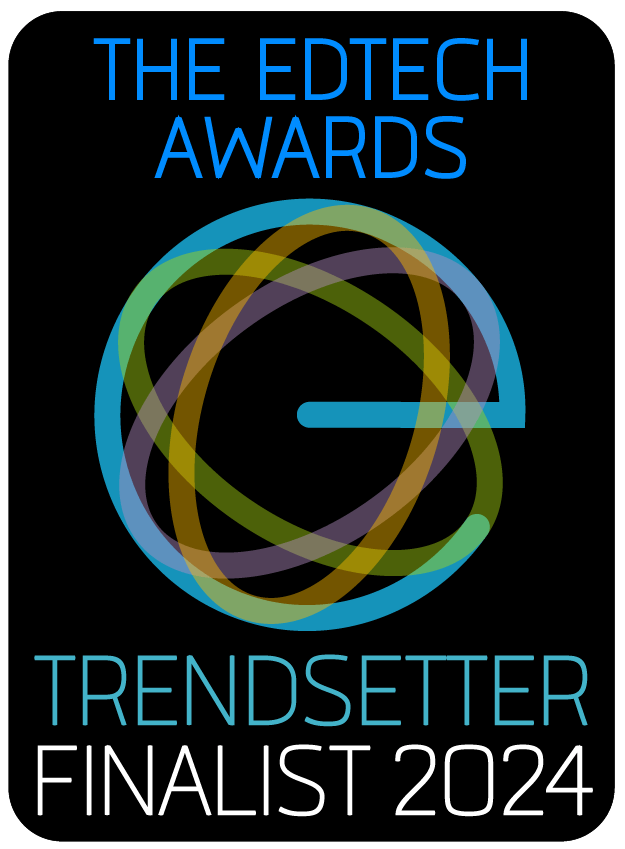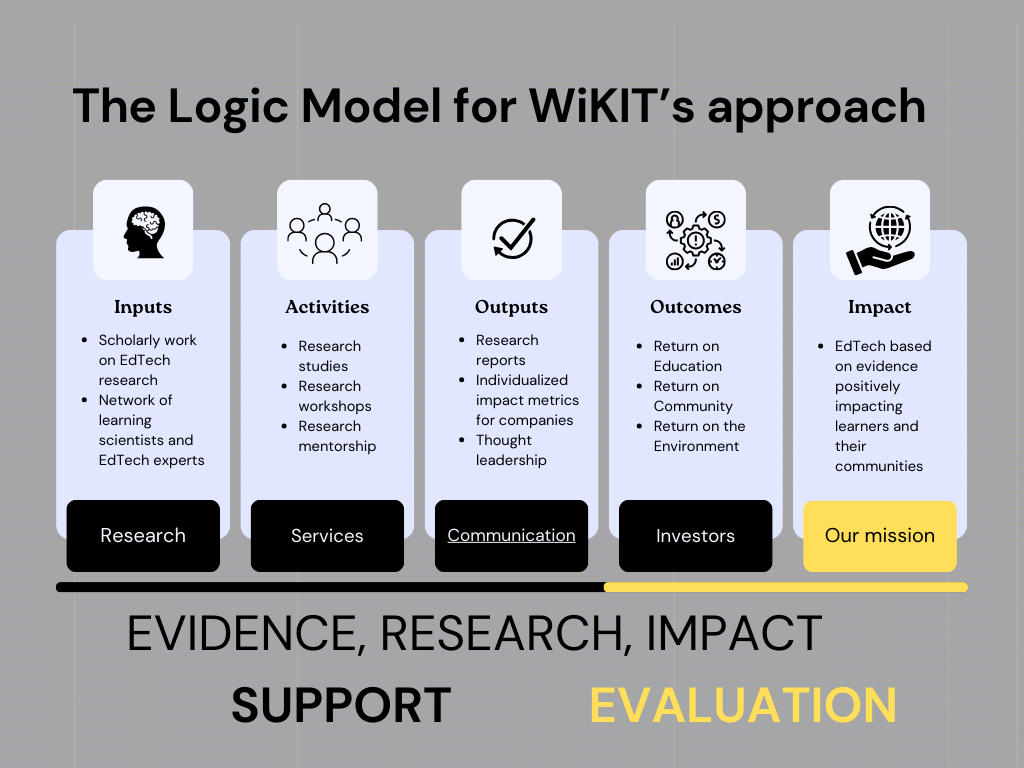WiKIT is officially a trendsetter. We are proud that our research services do not only impact the outcomes of EdTech organisations by making them based on science-based, externally verified data, but that we also shape the processes of impact development within these organizations. We tailored our business and thinking model to the unique area of EdTech impact.
Here are a few examples of our impact that extend beyond traditional impact metrics reporting and illustrate the transformative journey we undertake with organizations.
“After engaging with WiKIT, EdTech companies dedicated time to reflect on their impact strategy and their methods for collecting and disseminating evidence externally. This introspection led to the creation of internal impact strategies and externally facing evidence communication, such as new “Evidence webpages” by Learning Ladders launched in March 2024.”
“Prior to their partnership with WiKIT, Brighteye Ventures did not have formal expectations regarding impact from their portfolio companies. Today, they help identify learning impact metrics that companies will report on an ongoing basis from the point of investment. These impact metrics will fit into one of four buckets – the way that solutions make learning more affordable, effective, relevant and/ or engaging. Conference sessions, mentorship support and workshops are offered to their portfolio companies to boost awareness about impact importance and guide them on impact reporting and furthering their impact.”
We are committed to minimizing our environmental impact. Our primary strength lies in our virtual business model, which significantly reduces the need for travel and the associated carbon footprint. By conducting our operations online, we not only enhance efficiency but also contribute to a more sustainable future. Our employees work remotely and tell us that fits better their balance between personal and professional lives. We continuously seek to adopt and promote practices that support environmental sustainability in all aspects of our work. Read about our partnership with Trefadder and work on environmental impact of EdTech.
Our pledge to the EdTech ecosystem
As a social enterprise, we combine economic and social objectives in a business model that generates revenue while contributing to social sustainability by reinvesting our profits into EdTech-related projects. Read an interview in Impact Investor with our Co-founder Prof Natalia Kucirkova.
Download our free guide on the Hows and Whys of EdTech Evidence.
Read more about the science behind the WiKIT method.
What does it take for academia-industry partnerships to be successful? We summarized our lessons learnt in this academic article and this slide deck.
Testimonials
Martin Hamilton, Judge in EdTech 50
“Natalia’s approach to researching technology in education from a practice-based perspective is very well-regarded and forms an effective counterpoint to the common perception that education and EdTech researchers can be quite detached from the classroom and everyday teaching practice.”
Olli Valo, Head of Partnerships & Growth at Freeed and former CEO of Education Alliance Finland
“With WiKIT we could crystalize our impact goals which work as a backbone for our product and business development. During two consulting sessions we were able to create a concrete plan for how to measure our impact on learning and teaching.”
Sigbjørn Dugal, Founder and CEO, Pickatale
“As Pickatale evolves its digital reading platform for school and home markets around the world, it is critical that our product, tech and content development is founded on evidence-based practices to engage children and transform their learning experiences. We began by commissioning WiKIT to work with us on their independent and unbiased evidence-ready service. We are delighted with the results of the first phase in our collaborative journey, which has already had an impact, and look forward to continuing to work with them as our product develops.”
Deepak Bhalla, Founder of Pibbon Ltd.



